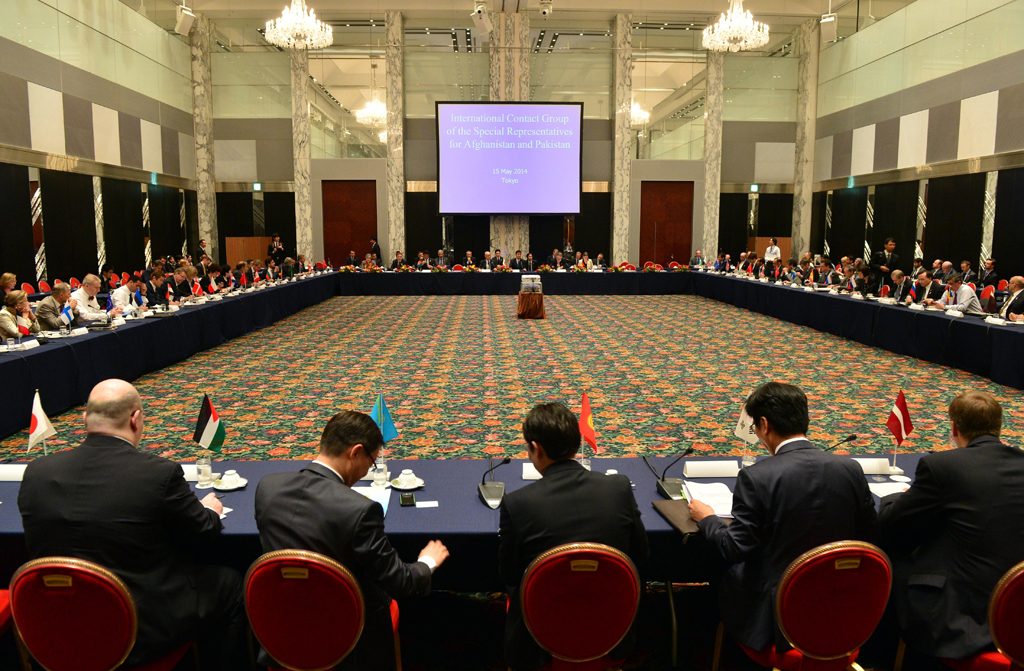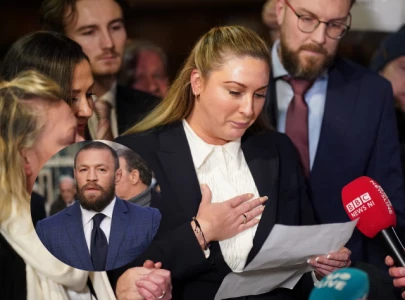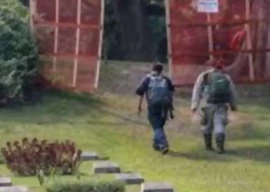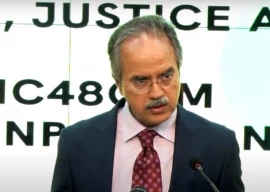
The International Contact Group on Afghanistan and Pakistan, which groups representatives from about 50 countries and global bodies, met as Afghanistan chooses a new president to oversee a new era without 51,000 departing US-led troops.
"Contact group members congratulated... the Afghan government on the successful first round of the presidential elections," said Michael Koch, Germany's special representative for Afghanistan and Pakistan, who chaired the Tokyo meeting.
Results confirmed Thursday that the race to replace President Hamid Karzai will go to a run-off vote, scheduled for June 14, between former foreign minister Abdullah Abdullah and ex-World Bank economist Ashraf Ghani.
"The security situation in Afghanistan remains challenging. There is no doubt on this," Koch told journalists after the meeting.
"On the election day itself, we had a number of incidents -- yet at the same time, despite massive threats, more than 50 percent of Afghans went to vote.
"A great majority of the Afghans showed they want to take their own political destiny in their own hands."
The first-round election last month was hailed a success, with seven million Afghans voting -- of whom 36 percent were women, far higher than at the last vote in 2009 -- and with Taliban insurgents failing to launch a major attack despite threats to disrupt the ballot.
The 2009 election, when Karzai retained power, was marred by ballot-box stuffing in a chaotic process that shook the multinational effort to develop a country that was run by the hardline Islamist Taliban between 1996 and 2001, and is still blighted by violence.
The Tokyo meeting acknowledged that Afghanistan continues to face serious security challenges, with participating envoys insisting that the international community remains engaged in its stabilisation.
"It is important to recognise that the war is not over yet," Ershad Ahmadi, the Afghanistan deputy foreign minister, said at the opening of the meeting.
"On the same token, to ensure lasting success, it is crucial that the international community maintains its support and engagement in Afghanistan at this critical period."
But a Japanese government official said ahead of the meeting that it was not an occasion for countries to make fresh financial pledges.
"Broadly speaking, it will be an opportunity for the international community to commit continued assistance to Afghanistan," he said.
The young democracy faces "a number of tasks, such as enactment of a law against money laundering and the establishment of a framework on the use of natural resources and minerals," he added.
The election goes to a second round after none of the eight candidates managed to gain more than 50 percent of the vote.
Abdullah secured 45 percent in first-round voting on April 5, with his main rival Ghani on 31.6 percent, according to the final results, which came after weeks of deliberation over fraud allegations.
COMMENTS (1)
Comments are moderated and generally will be posted if they are on-topic and not abusive.
For more information, please see our Comments FAQ

















Looks like Afghanistan is going to accomplish a successful/peaceful transition of govt --- how many years did it take Pakistan? Kudos are in order.